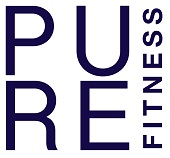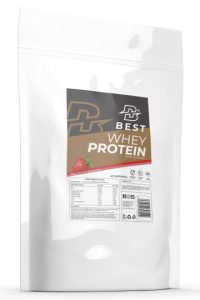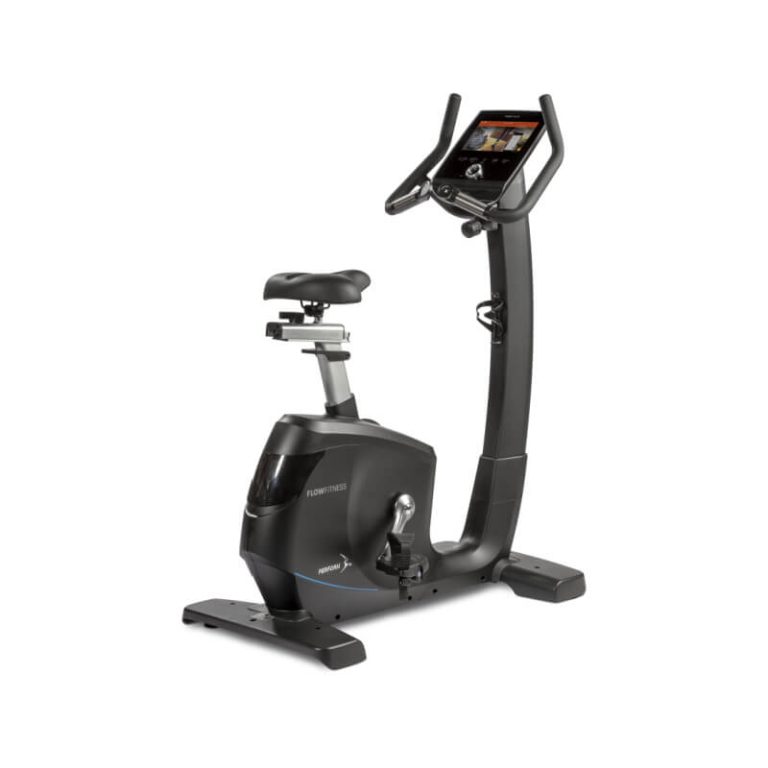Looking to enhance your athletic performance? Wondering which sports supplements are the go-to choices in the UK? Look no further! In this article, we will explore the most sought-after sports supplements in the UK, providing you with valuable insights and information. Whether you’re a professional athlete or just a fitness enthusiast, understanding the popularity and efficacy of these supplements can help you reach your ultimate fitness goals. From protein powders to creatine, we’ve got you covered. So, let’s dive in and discover the top sports supplements making waves in the UK!
Table of Contents
ToggleProtein Supplements
When it comes to sports supplements, protein is perhaps the most well-known and widely used. Protein supplements are commonly used by athletes and fitness enthusiasts to support muscle growth, aid in recovery, and improve overall performance. There are several different types of protein supplements available, each with its own unique benefits. Here are five popular protein supplements:
Whey Protein
Whey protein is a fast-absorbing protein derived from milk. It is often considered the gold standard of protein supplements due to its high biological value and complete amino acid profile. Whey protein is highly popular among athletes and bodybuilders as it is quickly digested and can promote rapid muscle protein synthesis. It is also known for its ability to boost muscle recovery and support lean muscle mass.
Casein Protein
Casein protein, on the other hand, is a slow-digesting protein also derived from milk. Unlike whey protein, casein forms a gel-like substance in the stomach, resulting in a slow release of amino acids into the bloodstream. This slow-release characteristic makes casein an ideal protein supplement for overnight muscle recovery and muscle growth support throughout the day.
Pea Protein
Pea protein is a plant-based protein made from yellow split peas. It is a popular choice among vegans and individuals with dairy allergies or intolerances. Pea protein is rich in essential amino acids and has been shown to be just as effective as whey protein in promoting muscle growth and recovery. Additionally, pea protein is easily digestible and has a low allergenic potential, making it suitable for individuals with sensitive stomachs.
Soy Protein
Soy protein is another plant-based protein option that is derived from soybeans. It is a complete protein containing all essential amino acids, and its high arginine content may contribute to improved blood flow and muscle recovery. Soy protein has been extensively researched and has shown positive effects on overall muscle protein synthesis and muscle strength. It is also a good option for vegetarians and vegans or those with dairy and gluten allergies.
Hemp Protein
Hemp protein is made from hemp seeds and is considered a complete plant-based protein. It is rich in omega-3 fatty acids and fiber, making it beneficial for heart health and digestion. Hemp protein also contains all nine essential amino acids, making it an excellent choice for supporting muscle growth and recovery. It is a particularly popular option for those looking for a sustainable and environmentally friendly protein source.
Pre-Workout Supplements
Pre-workout supplements are designed to enhance energy, focus, and performance during workouts. They typically contain a combination of ingredients that work together to increase energy levels, improve endurance, and promote muscle pumps. Here are five popular pre-workout supplements:
Caffeine
Caffeine is a central nervous system stimulant that is commonly found in pre-workout supplements. It is known for its ability to increase alertness, focus, and energy levels. Caffeine has been shown to enhance endurance, reduce perceived exertion, and improve overall athletic performance. It is important to note that individual tolerance to caffeine can vary, so it is recommended to start with a lower dosage and gradually increase as tolerated.
Creatine
Creatine is a naturally occurring compound found in the body that plays a crucial role in energy production. It is stored in the muscles and helps regenerate adenosine triphosphate (ATP), the primary energy source for muscle contractions. Supplementing with creatine has been shown to increase muscle strength, power, and overall exercise performance. It is particularly effective for high-intensity, short-duration activities.
Beta-Alanine
Beta-alanine is an amino acid that helps increase carnosine levels in the muscles. Carnosine acts as a buffer against the build-up of lactic acid, which can lead to fatigue and muscle soreness during intense workouts. By increasing carnosine levels, beta-alanine supplementation may delay fatigue, improve endurance, and enhance overall exercise performance.
L-Arginine
L-arginine is an amino acid that plays a key role in nitric oxide production. Nitric oxide helps dilate blood vessels, increasing blood flow and nutrient delivery to the muscles. L-arginine supplementation has been shown to enhance exercise performance, improve muscle pumps, and support overall cardiovascular health. It is often included in pre-workout supplements to enhance vascularity and promote optimal muscle function.
BCAAs
Branched-chain amino acids (BCAAs) are a group of three essential amino acids: leucine, isoleucine, and valine. They are called “branched-chain” because of their unique molecular structure. BCAAs are important for muscle protein synthesis, energy production, and reducing muscle protein breakdown. Supplementing with BCAAs before a workout can help preserve muscle mass, improve endurance, and accelerate recovery.
Post-Workout Supplements
Post-workout supplements are designed to optimize recovery, replenish nutrients, and promote muscle growth following intense exercise. These supplements typically contain ingredients that aid in muscle repair, reduce muscle soreness, and replenish glycogen stores. Here are five popular post-workout supplements:
Creatine Monohydrate
Creatine monohydrate, as mentioned earlier, is a well-known supplement that has been extensively researched for its benefits in muscle strength and power. Supplementing with creatine monohydrate after a workout can help replenish creatine stores in the muscles, leading to faster recovery and enhanced muscle growth. It is recommended to consume creatine monohydrate with a source of carbohydrates to optimize its uptake.
Branched-Chain Amino Acids (BCAAs)
BCAAs, which were also discussed as a pre-workout supplement, are equally valuable for post-workout recovery. During intense exercise, muscle protein breakdown increases, and BCAAs can help reduce this breakdown while promoting muscle protein synthesis. Consuming BCAAs after a workout can assist in repairing damaged muscles, reducing muscle soreness, and accelerating recovery.
Glutamine
Glutamine is a non-essential amino acid that becomes conditionally essential during periods of intense exercise and stress. It is the most abundant amino acid in skeletal muscle and plays a key role in muscle protein synthesis and immune function. Supplementing with glutamine post-workout can help replenish depleted glutamine stores, support muscle recovery, and strengthen the immune system.
L-Carnitine
L-carnitine is an amino acid-like compound that plays a vital role in energy metabolism. It helps transport fatty acids into the mitochondria, where they are used as a source of energy. L-carnitine supplementation post-workout can enhance fat burning, reduce muscle damage, and support muscle recovery. It is particularly beneficial for individuals looking to improve body composition and increase exercise performance.
L-Leucine
L-leucine is one of the essential amino acids that make up the BCAAs. It is often referred to as the “anabolic trigger” due to its ability to stimulate muscle protein synthesis. Consuming L-leucine after a workout, either through protein sources or as a standalone supplement, can help maximize the muscle-building response, promote recovery, and support overall muscle growth.
Protein Bars
Protein bars are convenient, portable snacks that provide a quick and easy way to increase protein intake on-the-go. They are a popular choice for individuals who are looking for a convenient post-workout snack or a healthy option to satisfy hunger between meals.
Electrolyte Supplements
Electrolyte supplements are commonly used by athletes and individuals engaging in prolonged or intense physical activity. Electrolytes are minerals that are essential for maintaining proper fluid balance, nerve function, and muscle contractions. During exercise, electrolytes are lost through sweat, and replacing them is crucial for maintaining optimal performance and preventing dehydration. Here are five popular electrolyte supplements:
Sports Drinks
Sports drinks are a common and convenient option for replenishing electrolytes during and after exercise. They typically contain a mix of carbohydrates, electrolytes (such as sodium, potassium, and magnesium), and sometimes amino acids or other performance-enhancing ingredients. Sports drinks are designed to provide hydration, fuel, and replenish electrolytes lost through sweat.
Electrolyte Powders
Electrolyte powders offer a convenient way to customize and control your electrolyte intake. These powders are typically mixed with water to create a flavored electrolyte drink. They often contain a blend of sodium, potassium, magnesium, and other trace minerals. Electrolyte powders can be particularly beneficial for individuals who prefer a specific taste or need to tailor their electrolyte intake based on their activity level and sweat rate.
Sports Gels
Sports gels are a portable and concentrated source of carbohydrates and electrolytes. They are commonly consumed during endurance activities to provide a quick and easily digestible energy boost. Many sports gels also contain electrolytes such as sodium and potassium to help replenish what is lost through sweat. Sports gels are available in various flavors and are a popular choice for athletes seeking convenience and rapid fueling.
Electrolyte Tablets
Electrolyte tablets are effervescent tablets that dissolve in water to create a flavored electrolyte drink. They are compact and easy to carry, making them a convenient option for athletes on-the-go. Electrolyte tablets typically contain a blend of electrolytes such as sodium, potassium, magnesium, and calcium. They are a popular choice for those who prefer a lower-calorie alternative to sports drinks or want to customize their electrolyte intake.
Coconut Water
Coconut water is a natural source of electrolytes and is often consumed as a hydrating beverage. It is rich in potassium, magnesium, and calcium, making it an excellent electrolyte replenisher. Coconut water is also low in calories and has a naturally sweet taste. It can be consumed on its own or used as a base for smoothies or post-workout recovery drinks.
Fat Burners
Fat burners are supplements that are designed to support weight loss and enhance fat metabolism. They typically contain a blend of ingredients that work synergistically to increase energy expenditure, suppress appetite, and promote fat oxidation. While they are not magic pills for weight loss, fat burners can complement a healthy diet and exercise routine. Here are five popular fat burners:
Green Tea Extract
Green tea extract is derived from the leaves of the Camellia sinensis plant. It is rich in catechins, particularly epigallocatechin gallate (EGCG), which is believed to have thermogenic properties. Green tea extract has been shown to increase energy expenditure and fat oxidation, making it a popular ingredient in fat burners. It may also have antioxidant and anti-inflammatory effects.
Caffeine
Caffeine, as discussed earlier, is a central nervous system stimulant that can increase energy expenditure and fat oxidation. It can also help suppress appetite and improve exercise performance. When combined with other ingredients, caffeine can enhance the thermogenic effect of fat burners. However, it is important to be mindful of individual tolerance and potential side effects, such as jitters or insomnia.
Carnitine
Carnitine is a compound that plays a crucial role in fatty acid metabolism. It helps transport fatty acids into the mitochondria, where they are used as a source of energy. Carnitine supplementation has been shown to increase fat oxidation, improve exercise performance, and reduce fatigue. It is often included in fat burners to support the body’s natural fat-burning processes.
Conjugated Linoleic Acid (CLA)
Conjugated linoleic acid (CLA) is a type of omega-6 fatty acid found in meat and dairy products. It has been shown to have potential benefits in reducing body fat mass, increasing lean body mass, and improving body composition. CLA is believed to work by inhibiting fat storage and promoting fat oxidation. It is often included in fat burners as an ingredient to support weight loss efforts.
Garcinia Cambogia
Garcinia cambogia is a tropical fruit that contains hydroxycitric acid (HCA), which is believed to have appetite-suppressing and fat-blocking properties. It is thought to inhibit an enzyme called citrate lyase, which is involved in the production of fat. Garcinia cambogia has been included in fat burners as a natural ingredient to aid in weight loss. However, more research is needed to definitively support these claims.
Amino Acid Supplements
Amino acid supplements are popular among athletes and fitness enthusiasts for their potential to support muscle growth, enhance exercise performance, and accelerate recovery. Amino acids are the building blocks of proteins and play a vital role in various physiological processes within the body. Here are five popular amino acid supplements:
BCAAs
Branched-chain amino acids (BCAAs) were discussed earlier as both pre- and post-workout supplements. BCAAs, which include leucine, isoleucine, and valine, are essential amino acids that cannot be synthesized by the body and must be obtained through diet or supplementation. BCAAs are believed to promote muscle protein synthesis, reduce muscle protein breakdown, and improve exercise performance.
Glutamine
Glutamine, also mentioned earlier as a post-workout supplement, is a non-essential amino acid that becomes conditionally essential during periods of intense exercise or stress. It is involved in various metabolic processes and plays a key role in immune function. Glutamine supplementation may support muscle recovery, reduce muscle damage, and strengthen the immune system.
Beta-Alanine
Beta-alanine, previously discussed as a pre-workout supplement, is an amino acid that helps increase carnosine levels in the muscles. Carnosine acts as a buffer against the build-up of lactic acid during intense exercise. Supplementing with beta-alanine has been shown to delay fatigue, improve exercise performance, and enhance overall muscle endurance.
L-Carnitine
L-carnitine, mentioned earlier as a post-workout supplement, is an amino acid-like compound that plays a crucial role in energy metabolism. It helps transport fatty acids into the mitochondria, where they are used as a source of energy. L-carnitine supplementation may promote fat oxidation, reduce muscle damage, and support muscle recovery.
Taurine
Taurine is a non-essential amino acid that is abundant in the muscles and nervous system. It has been shown to have various physiological functions, including improving exercise performance, enhancing fat metabolism, and reducing muscle damage. Taurine supplementation may be particularly beneficial for individuals engaged in high-intensity, endurance-type activities.
Vitamin Supplements
Vitamins are essential nutrients that play a crucial role in various bodily functions. While it is best to obtain vitamins from a well-balanced diet, some individuals may have specific dietary restrictions or requirements that make supplementation necessary. Here are five popular vitamin supplements:
Multivitamins
Multivitamins are supplements that contain a combination of essential vitamins and minerals. They are designed to provide a comprehensive range of nutrients that may be lacking in an individual’s diet. Multivitamins can help support overall health, fill nutrient gaps, and enhance general well-being. It is important to choose a high-quality multivitamin that suits individual needs and includes appropriate dosages.
Vitamin D
Vitamin D is known as the “sunshine vitamin” because it is produced in the skin through exposure to sunlight. It plays a critical role in calcium absorption, bone health, and immune function. In countries with limited sunlight exposure, such as the UK, vitamin D deficiency is common. Supplementing with vitamin D can help maintain optimal levels and support overall health.
Vitamin C
Vitamin C, also known as ascorbic acid, is an antioxidant vitamin that is involved in various metabolic processes. It plays a crucial role in immune function, collagen synthesis, and antioxidant defense. Vitamin C supplementation may help support immune health, reduce the duration and severity of the common cold, and enhance overall well-being.
Omega-3 Fatty Acids
Omega-3 fatty acids are a type of polyunsaturated fat that are essential for optimal health. They play a critical role in brain function, heart health, and inflammation regulation. Omega-3 fatty acids, particularly eicosapentaenoic acid (EPA) and docosahexaenoic acid (DHA), are commonly found in fatty fish. However, individuals who do not consume enough fish may benefit from omega-3 fatty acid supplementation.
Magnesium
Magnesium is a mineral that is involved in over 300 biochemical reactions in the body. It plays a crucial role in protein synthesis, muscle function, and energy production. Magnesium supplementation may help support muscle recovery, reduce muscle cramps, improve sleep quality, and support overall metabolic health. It is particularly beneficial for individuals with low dietary magnesium intake or increased magnesium requirements.
Carbohydrate Supplements
Carbohydrates are macronutrients that provide the body with energy. They are particularly important for athletes and individuals engaging in prolonged or intense physical activity. Carbohydrate supplements can provide a quick and convenient source of energy before, during, or after workouts. Here are five popular carbohydrate supplements:
Dextrose
Dextrose, also known as glucose, is a simple sugar that is rapidly absorbed by the body and readily available as a source of energy. It is often used in carbohydrate supplements and sports drinks to provide a quick and easily digestible source of fuel during workouts. Dextrose supplementation can help replenish glycogen stores and enhance performance during intense exercise.
Maltodextrin
Maltodextrin is a complex carbohydrate derived from starch. It consists of multiple glucose units and is rapidly digested and absorbed by the body. Maltodextrin is a popular carbohydrate supplement that provides a steady release of energy and helps replenish glycogen stores. It is often included in post-workout recovery formulas or consumed during endurance activities.
Waxy Maize Starch
Waxy maize starch is a type of carbohydrate that is derived from corn. It is unique in its structure, which allows for rapid digestion and absorption. This makes waxy maize starch an excellent carbohydrate supplement for replenishing glycogen stores and promoting muscle recovery. It is often preferred by athletes who require quick and easily digested carbohydrates.
Hydrolyzed Corn Starch
Hydrolyzed corn starch is another carbohydrate supplement derived from corn. It undergoes a process called hydrolysis, which breaks down the starch into shorter carbohydrate chains. This results in a carbohydrate powder that is easily digestible and readily available as a source of energy. Hydrolyzed corn starch is commonly included in carbohydrate blends or sports drinks.
Cluster Dextrin
Cluster dextrin, also known as highly branched cyclic dextrin, is a type of carbohydrate supplement that consists of highly branched glucose polymers. It is rapidly absorbed by the body and provides sustained energy release. Cluster dextrin is known for its low osmolality, meaning it is easier on the stomach and less likely to cause gastrointestinal discomfort. This makes it a popular choice among athletes during endurance activities.
Joint Support Supplements
Joint support supplements are commonly used by individuals who engage in high-impact activities, have joint pain or discomfort, or want to support joint health as they age. These supplements typically contain ingredients that help reduce inflammation, support cartilage health, and promote overall joint mobility. Here are five popular joint support supplements:
Glucosamine
Glucosamine is a compound that occurs naturally in the body and plays a vital role in the formation and repair of cartilage. It is commonly used as a joint support supplement to help reduce joint pain, improve joint function, and support cartilage health. Glucosamine is often derived from shellfish shells and is available as a supplement in various forms, including glucosamine sulfate and glucosamine hydrochloride.
Chondroitin
Chondroitin is a naturally occurring compound that is a major component of cartilage. It works synergistically with glucosamine to support joint health and reduce inflammation. Chondroitin supplementation has been shown to improve joint function, reduce pain, and slow down the progression of osteoarthritis. It is often combined with glucosamine in joint support supplements.
Turmeric
Turmeric is a spice that contains a bioactive compound called curcumin. Curcumin has potent anti-inflammatory and antioxidant properties, making it beneficial for joint health. Turmeric supplementation may help reduce joint pain, improve mobility, and support overall joint function. It is often combined with other ingredients in joint support formulas for enhanced effectiveness.
MSM
Methylsulfonylmethane (MSM) is a naturally occurring compound that is rich in sulfur. It is believed to have anti-inflammatory and analgesic properties, making it a popular ingredient in joint support supplements. MSM supplementation may help reduce joint pain, improve joint function, and support overall joint health. It is often combined with glucosamine and chondroitin for synergistic effects.
Omega-3 Fatty Acids
Omega-3 fatty acids, as mentioned earlier as a vitamin supplement, also play a role in joint health. They have been shown to have anti-inflammatory effects, reduce joint stiffness, and improve joint mobility. Omega-3 fatty acids can be obtained through dietary sources such as fatty fish or through supplementation with fish oil or krill oil capsules. Including omega-3 fatty acids in a joint support regimen can help support overall joint health.
In conclusion, sports supplements play a significant role in supporting athletic performance, recovery, and overall health. From protein supplements that aid in muscle growth and repair to electrolyte supplements that replenish essential minerals lost during exercise, there is a wide range of options available to meet individual needs and goals. It is important to remember that while sports supplements can be beneficial, they are not a substitute for a healthy diet and regular exercise. Consulting with a healthcare professional or a registered dietitian is recommended to determine the most suitable supplements and dosages for individual needs.










